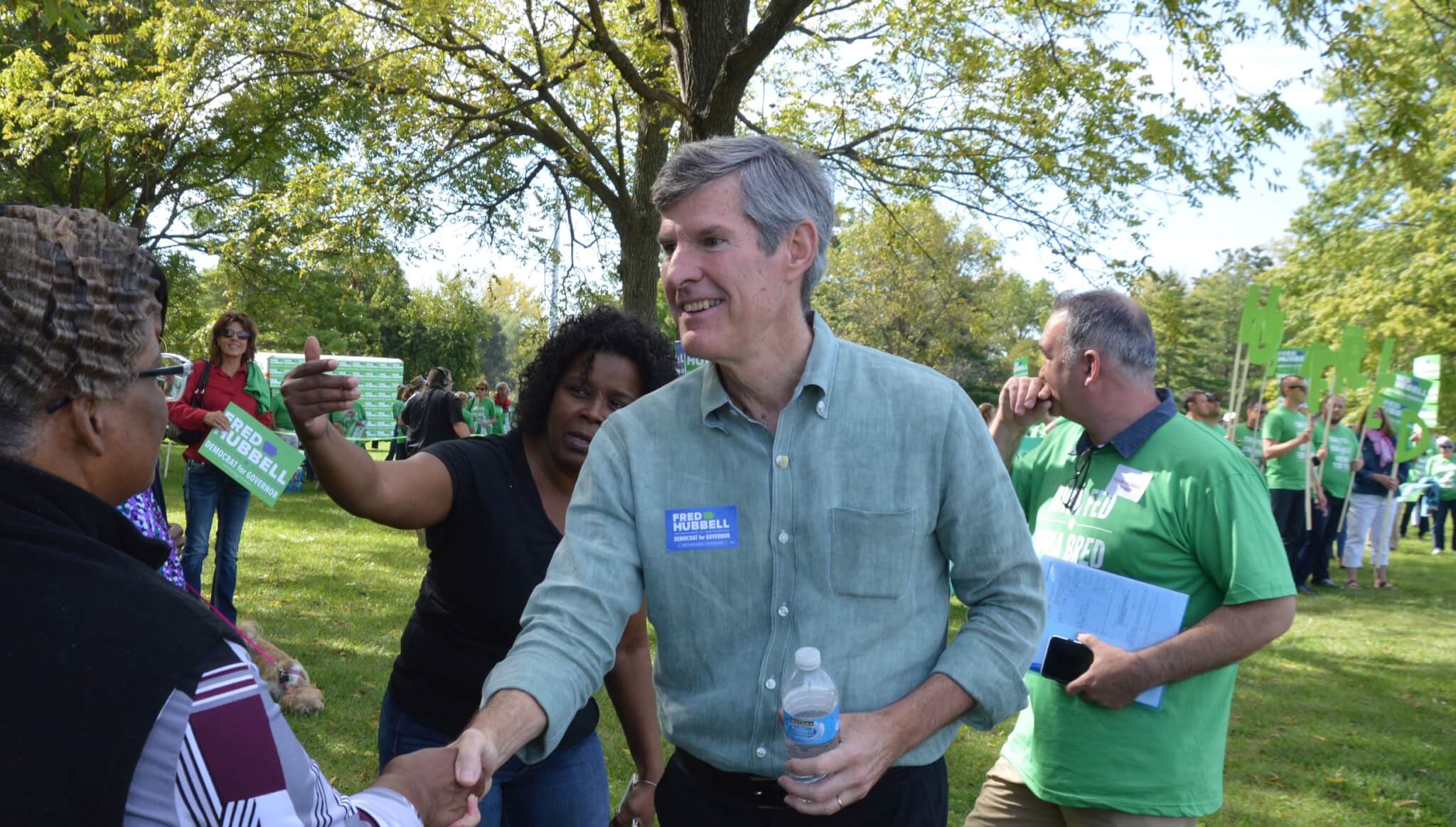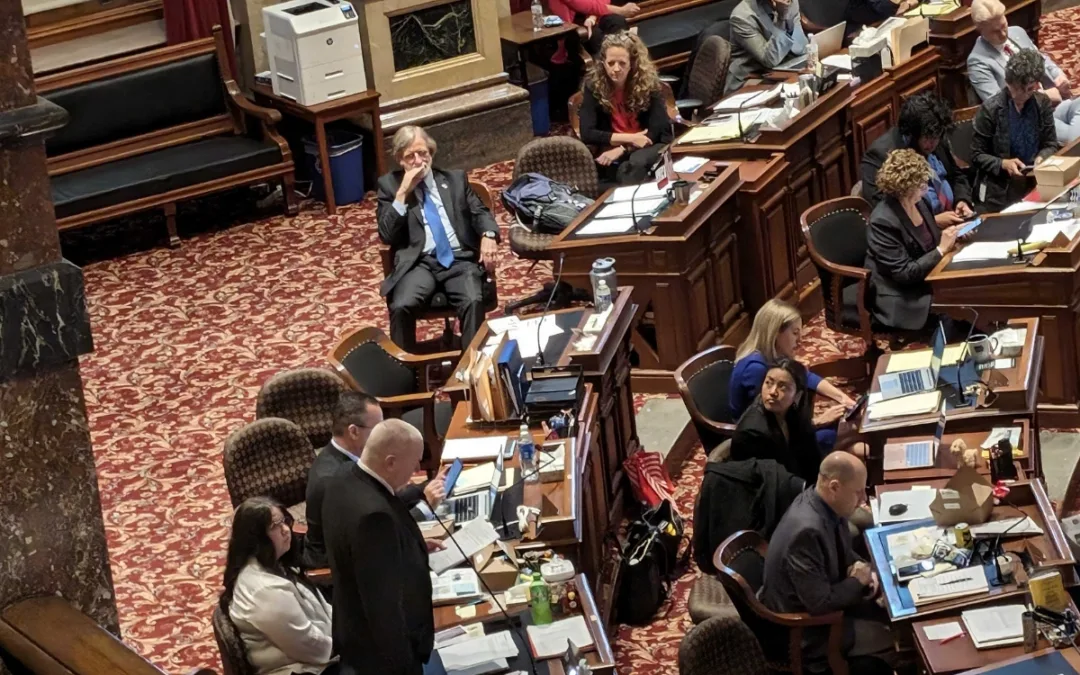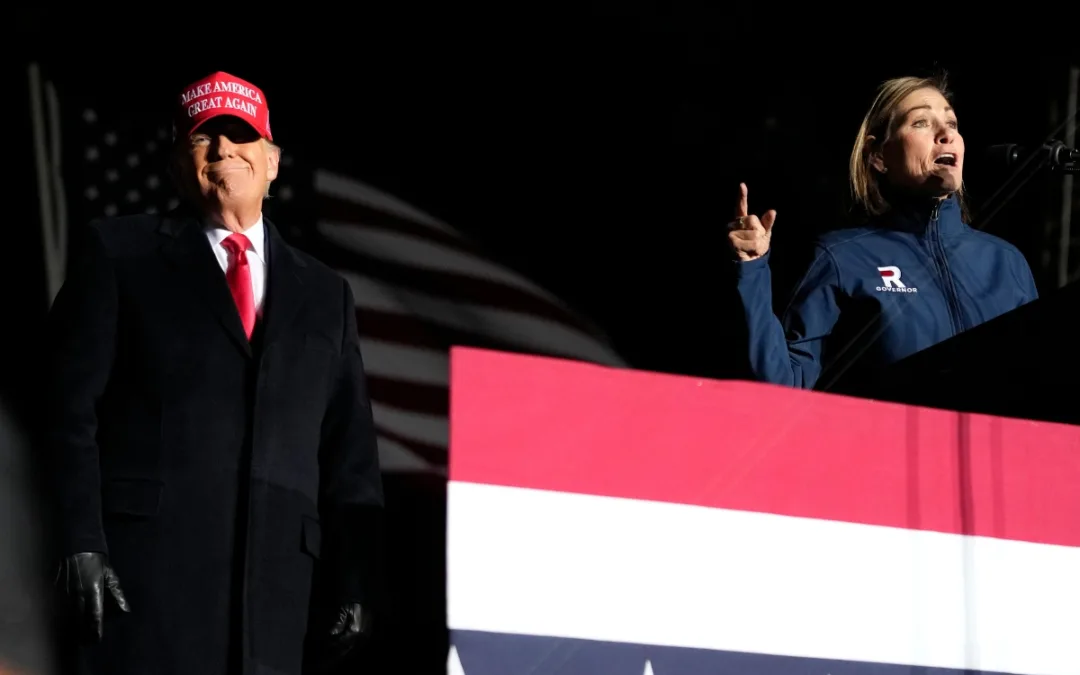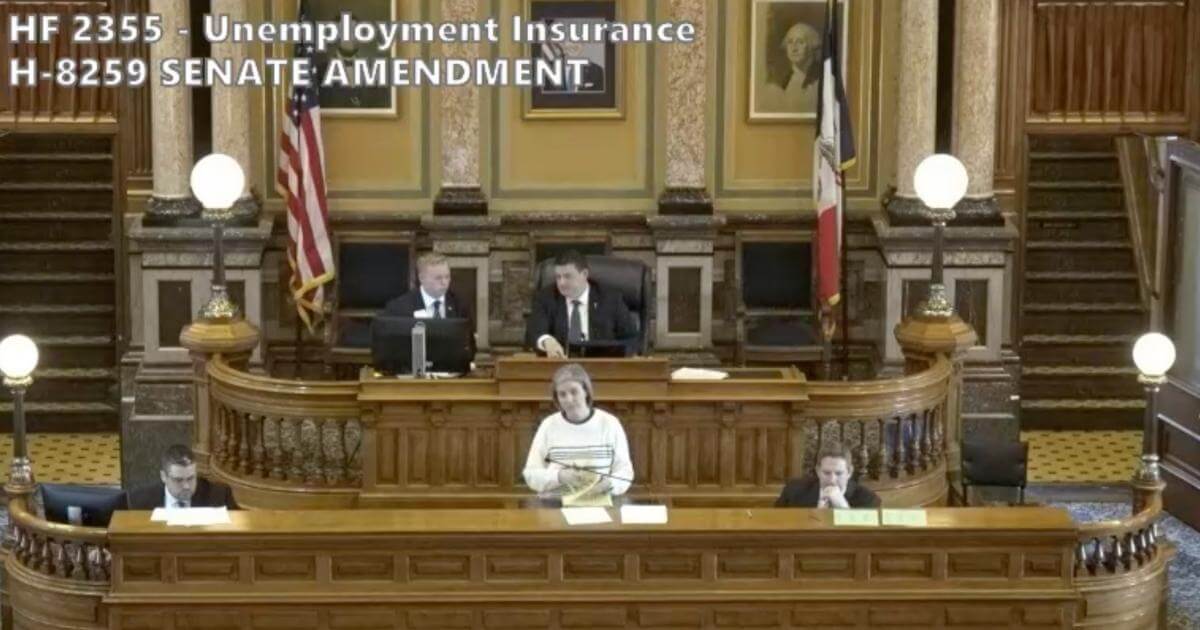
Around Des Moines, the Hubbell name is known for many things. Thousands of people live in Hubbell Realty-managed apartments and homes. Parents drop their kids off to school at Hubbell Elementary. Hubbell Avenue is a major artery that cuts through Des Moines’ East Side. For Drake University students, the name relates to fun-filled snow days – “Hubbell-ing” is the term they use for sledding down the hills by the freshman dorms on food trays taken from Hubbell Dining Hall.
And to Iowa activists who care deeply about the environment, Planned Parenthood and affordable healthcare, Fred and Charlotte Hubbell are known as the reliable allies you call first when your cause needs help. For three and a half decades, the Hubbells have been steadfast champions of key progressive and Democratic causes, putting their money where their mouth is to fund important projects. Their work was instrumental in opening a Planned Parenthood clinic in Dubuque, as well as adding new mental health beds and doctors in Des Moines.
They certainly didn’t have to. The Hubbell family helped found Des Moines in the mid-1800s, created enormously successful businesses, built Des Moines Waterworks and owned Terrace Hill for a time. Fred, now a gubernatorial candidate, could have sat back and enjoyed life, and he and Charlotte were off to a good start when they were both working as attorneys in New York in their 20s.
But it was when they were on their way back to Iowa, ready to settle down in their home state, that a harrowing, life-threatening experience made them consider the purpose of their lives. Pakistani terrorists hijacked the plane they were on, holding most of the passengers hostage for a week and a half in Afghanistan and Syria before the Pakistani government negotiated a deal.
“That was a very long experience,” Fred Hubbell said of the 11-day ordeal. “Part of what we took away from that was life can change instantaneously and there’s nothing you can do about it. The issue is if you persevere and survive whatever that situation is, does it change your life at all?”
The Hubbells were enjoying one last big vacation before returning to Iowa and starting a family. Fred was 30 at the time; Charlotte was 31. When flying out of Pakistan, three armed terrorists took control of the Boeing 720 and ordered the pilot to land in Kabul, Afghanistan. There they stayed for five days as the terrorists demanded the release of political prisoners from Pakistan. At one point, they shot and murdered a Pakistani diplomat on board in front of the hostages. A handful of American citizens were on the flight, along with over 100 more passengers and crew.
Charlotte was released with another American woman, forced at gunpoint to leave her husband. The plane was then flown to Syria, where it stayed for several more days. There the terrorists set a deadline for a prisoner release, vowing if it wasn’t met they would kill the American hostages, including Fred, still on board. A deal was struck within minutes of the deadline and the hostages were let go.
“My wife and I both came to the conclusion after that experience that we really wanted to make a difference in our lives, and not just go through and enjoy ourselves, have kids and work hard and buy all the toys we could have,” Hubbell explained. “We wanted to make a difference in people’s lives and their community.”
To Hubbell, that meant both running responsible businesses and investing in the community.
“When we got back to Des Moines after that, I went to work and started to work hard, pay attention and make a successful career,” Hubbell said of his job as chairman of Younkers department stores. “Charlotte did the same thing in her jobs. But we realized there was more to life than just being successful. It was important to be a progressive member of your greater community.”
So, he looked to see what needs weren’t being addressed, starting with his employees. Younkers was recruiting many people from out of state to work in Iowa, so he wanted to make sure the state had the kind of environment and quality of life that people would want to move and stay here. He also looked at his individual employees’ needs, a group that was largely female.
“At Younkers we had 5,000 employees, but a majority of them were female,” Hubbell noted. “Most of our customers were female … Charlotte and I made a decision, I could work with Planned Parenthood and help them provide cost-effective healthcare. And it was important to provide good, quality healthcare to people in Central Iowa, but also to our employees. I wanted to make sure that that kind of healthcare was available not just to men, but to women also.”
Hubbell joined Iowa’s Planned Parenthood board in 1982 and would become the board president in 1985. He particularly liked that they had a sliding scale for how much patients had to pay, making quality healthcare access easier for lower-income Iowans.
“I saw an opportunity to help an organization that was doing a lot of good in our community, but was under a lot of external pressure,” he said.
The early 1980s wasn’t an easy time for Planned Parenthood. The Roe v. Wade decision was still a relatively recent event, and Ronald Reagan was bringing political pressure down on the organization from the presidency.
Pro-life activists in Northwest Iowa soon targeted Hubbell and his business for his involvement in the group. They threatened to picket the Younkers in Sioux City, sent letters to Younkers’ headquarters and called managers at their stores about Hubbell’s role on the Planned Parenthood board. Hubbell didn’t back down in his support.
“We discussed it, decided we weren’t going to change anything,” Hubbell recalled. “I’m not going to leave the board or take an over-reactive response.”
Pickets and protests cropped up again soon after, aimed at Planned Parenthood’s new headquarters in Des Moines, a project that Hubbell was the fundraising co-chair for.
“They’d stand out there and hurl threats and say all these nasty things to the employees or patients going in the door,” he said. “We had to organize a way to get the patients in there without having to go through that gauntlet.”
Planned Parenthood ran into another problem around 2007 when they were looking to open up a clinic in Dubuque. No one in the heavily Catholic city would rent out or sell a building to them. It was getting difficult for women in Northeast Iowa to access Planned Parenthood’s healthcare services, and Hubbell heard of stories of women driving long distances to get care. So, he worked through a broker to find a property owner who would sell a building to Hubbell, who then in turn passed it off to Planned Parenthood. And thanks to that, Planned Parenthood was finally able to operate in a community that once tried to block them.
But it wasn’t all conflict. When Hubbell was approached by the head of Mercy Hospital in Des Moines, a Catholic organization, to join their board, he worried that his position with Planned Parenthood would make the offer problematic. However, the Catholic nun who asked him figured that his experience and commitment to healthcare issues outweighed anything else.
“What she and I both recognized is we agree on a lot more things than we disagree on,” Hubbell noted. “We agree on the need to have quality, affordable, accessible healthcare for men and women all around Central Iowa. We can disagree on some facet of that, but that’s a small piece of it. She taught me with that that it’s important to find common ground that you agree on and work together to make that as successful as you can.”
His work on healthcare issues soon included the topic on the minds of many Iowans these days: mental healthcare. Broadlawns reached out to Hubbell several years ago for help with their own issues – the Des Moines hospital didn’t have nearly enough psychiatric beds to treat their influx of mental health patients.
“Patients were in beds in the hallways because they had no place to put them, couldn’t treat them,” Hubbell explained. “So, we decided to help, we worked to put together a program to expand Broadlawns to add 50% more psychiatric health beds and two new psychiatrists.”
All of those actions helped work to toward that goal of living a more meaningful life for Hubbell.
“My point is I don’t shy away from problems,” Hubbell stated. “If there’s an issue out there where people are being unfairly treated and they’re not getting the kind of access to good quality healthcare they deserve, I’m going to step in and try to help. That’s what I’ll do as governor.”
Throughout his gubernatorial campaign for the Democratic Party’s nomination, Hubbell has emphasized his past experience in those leadership roles – from stepping in to run the beleaguered Department of Economic Development to his philanthropic work on healthcare and environmental issues. Taking on the problems of the entire state from the governor’s office would certainly be a much bigger challenge, but it’s one he seems eager to attempt.
Ask around Democratic and activist circles in Iowa, and they’ll tell you Hubbell has already clearly achieved that goal of a meaningful life that makes a difference in people’s lives. But depending on how the primary and general election goes, he may have one more big opportunity to impact far more people in a positive way in Iowa.
by Pat Rynard
Posted 10/16/17
Politics

AEAs cutting workers in wake of Republican legislation
Iowa legislators said a new bill cutting money for agencies that help students with disabilities wouldn't affect services. But area education...

He said what? 10 things to know about RFK Jr.
The Kennedy family has long been considered “Democratic royalty.” But Robert F. Kennedy, Jr.—son of Robert F. Kennedy, who was assassinated while...
Local News

No more Kum & Go? New owner Maverik of Utah retiring famous brand
Will Kum & Go have come and gone by next year? One new report claims that's the plan by the store's new owners. The Iowa-based convenience store...

Here’s a recap of the biggest headlines Iowa celebs made In 2023
For these famous Iowans, 2023 was a year of controversy, career highlights, and full-circle moments. Here’s how 2023 went for the following Iowans:...





